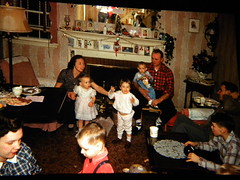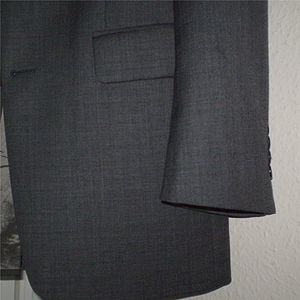I've been enjoying Susan Cooper's blog for quite some time now. Since she usually deals with matters of life stories, I thought she'd be a good guest on Wrote By Rote. In the post that follows, Susan talks about some of the challenges she has faced in her life and the lessons she has learned from them. She also has a book that you might enjoy reading or buying as a Christmas gift for someone on your list. I'm happy to present Susan P. Cooper.
“Lessons From An Ordinary
Life”: A Dyslexic’s Miracle
I’ve been asked on
more occasions than I can count, why in the world would I choose to write
anything, much less produce a book, knowing I’m dyslexic? That is an excellent question.
So what is this
thing called Dyslexia (DRD)? Please bear
with me as I explain.
"It is a general term for disorders that involve difficulty in
learning to read or interpret words, letters, and other symbols, but does not
affect general intelligence. It shows up
in reading, writing and speech. It is a reading disability that occurs when the
brain does not properly recognize and process certain symbols.
Dyslexia or DRD occurs when there is a problem in areas of the brain that
help interpret language. It is not caused by vision problems. The disorder is a
specific information-processing problem that does not interfere with one's
ability to think or to understand complex ideas. Most people with DRD have
normal intelligence, and many have above-average intelligence and it runs in
families.”
As a young child, I
was active and imaginative with large coke bottle bottom glasses that struggled
at school. I was unaware of my disability at the time. When struggling with an
unknown problem as a young child, it results in developing coping mechanisms.
I was terribly shy
around my peers and teachers, not willing to speak, often because my speech
would get all twisted up and make me appear "stupid or silly". Regardless, I was determined not to let my
issues prevent me from achieving any desired success.
To cope with my dyslexia,
I became an acute observer of all that was going on around me. Though my observations, I was able to grow
into an auditory storyteller. It was a
skill I honed and used for the sole purpose of helping someone see a
circumstance in a different light or to teach a lesson.
The thought, or
glimmer of an idea for
my first book,
started many years ago. I often would share a story as an allegory to help
someone with a current challenge. Many of my friends and colleagues suggested
that I put my stories/allegories in written form or maybe even publish them in
a collection. My first thought was doing so was impossible given my disability.
As time passed, the
suggestion to publish my stories with my illustrations grew more
persistent. I knew if I genuinely wanted
my voice to be heard I needed to find a way to communicate what I had to
share. Be it through what I would write,
the drawings I created or my photography. Despite the fact that, it was and is
a challenge for me to write well, I knew if I put my mind to it and with the
help of all the available tools I have amassed, it could be done.
So here, with the
help of an editor, I now have my first solo-published book. It is my miracle.
My new book is
a compilation of some of the short stories/allegories I would share with
others. The greatest surprise for me is other books are in the works.
I never dreamed of
being a writer or publishing anything. What I did dream about was helping
others by teaching everyday lessons in a unique way.
What I’ve learned
from this is one never knows where something will take us. Never limit what we
can achieve because of our own prejudices about what we can or cannot do. For me, it was to share a story in the hope
that it would help another in some small way.
In closing, if you
have a dream, then go for it. You just
never know where it will take you.
Susan is a former Marketing & Sales Executive, now the Publisher and Executive Director for Finding Our Way Now LLC.
Susan is by nature a storyteller & teacher who makes her home in Northern California with her husband, her greatest cheerleader, and her cat Samuel who watches over everything she does.
Susan’s work now allows her the opportunity to share the many stories she used to teach and the lessons she's learned in life and in the workplace. It has rekindled her passion for drawing, which she now uses to illustrate her stories and podcasts.
What makes this all the more interesting is she dyslexic. So the act of writing for Susan is a serious challenge. It often takes her four times longer to create a story then it does for others without this disability. She will tell you she has never been one to shy away from a challenge and works hard to overcome her dyslectic eye to deliver a quality & entertaining product. As a testament to her efforts, she is now a published author with more books on the way.
 Finding our way through life involves an equal share of joy and woe. The stories we often tell each other throughout the journey help us make sense of it all. The childhood memories collected here act as self-discovery guideposts for author and reader alike. The deceptively simple lessons shed light on the power stories have to shape and connect us. This collection and the accompanying artwork are a must for those who seek comfort in wondering about life’s seemingly random treasure box of experiences.
Finding our way through life involves an equal share of joy and woe. The stories we often tell each other throughout the journey help us make sense of it all. The childhood memories collected here act as self-discovery guideposts for author and reader alike. The deceptively simple lessons shed light on the power stories have to shape and connect us. This collection and the accompanying artwork are a must for those who seek comfort in wondering about life’s seemingly random treasure box of experiences.
Find the book on
Amazon
What obstacles have you had to overcome in your life? Have written a memoir about this or have you considered doing so? Do you have any questions for Susan about dyslexia or her book?

















































